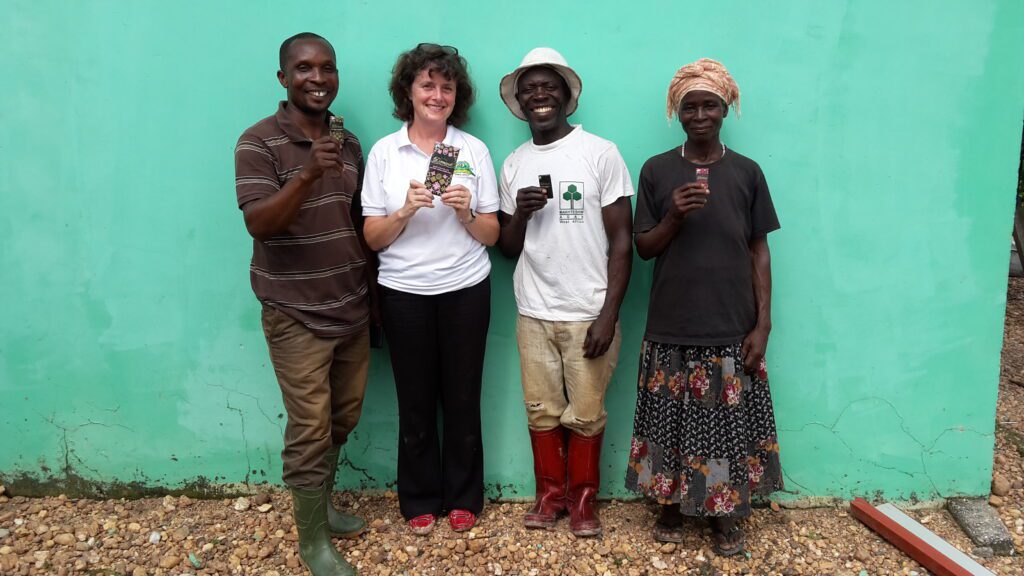Gender Justice is a term widely used in development circles. It signifies the goal for full equality and equity between women and men in all spheres of life, resulting in women jointly defining and shaping the policies, structures, and decisions that affect their lives and society as a whole.
It is well documented that women who work in cocoa have limited access to land, credit, inputs and training which means even when they own farms they are often not as productive as male farmers. They are rarely fairly rewarded even when they work on their family farms and they have been described as invisible.
Addressing the deeply embedded gender inequalities in cocoa-producing regions could improve the long-term productivity and resilience of the cocoa-chocolate value chain overall.
Over the last decade a number of organizations have recognized this inequity and have developed programs to address it.
Próximamente versión en español


Authored by
Sophi Tranchell, Divine Chocolate Limited, CEO 1999 – 2020
Social Entrepreneur – Producer Support & Ethical Supply Chain
References
“Gender justice and women’s rights,” Oxfam International (accessed on February 7, 2023).
“Progress on the Sustainable Development Goals: The gender snapshot 2022,” UN Women and United Nations Department of Economic and Social Affairs, Statistics Division (accessed on February 7, 2023).
“The ‘invisible’ women at the heart of the chocolate industry,” Jez Fredenburgh, BBC (accessed on February 9, 2023).
“Promoting gender equality in the cocoa-chocolate value chain,” Stephanie Barrientos, The University of Manchester (accessed on February 9, 2023).
“Gender Integration Guidance Note,” World Cocoa Foundation (WCF) (accessed on February 9, 2023).
“Gender Action Learning System: Practical Guide For Transforming Gender And Unequal Power Relations In Value Chains,” Thies Reemer and Maggie Makanza, Oxfam Novib, January 2015.
Have a comment on this definition?
